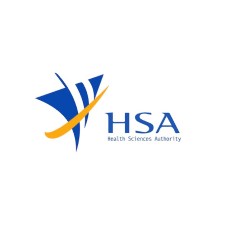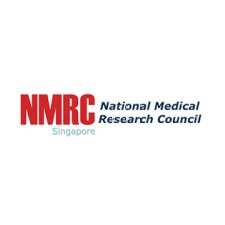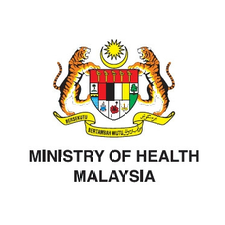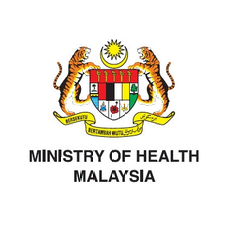Bridging Care, Building Trust
Revolutionizing Women’s Health: Stem Cell Therapy in Obstetrics and Gynecology
Conditions Treatable with Stem Cell Therapy
Stem cell therapy offers transformative solutions for diverse obstetric and gynecologic disorders by targeting underlying pathophysiology:
Infertility & Reproductive Disorders
- Asherman Syndrome: Intrauterine adhesions causing infertility or recurrent miscarriage.
- Premature Ovarian Insufficiency (POI): Ovarian failure before age 40.
- Endometrial Atrophy: Thin endometrium resistant to hormonal therapy.
- Polycystic Ovary Syndrome (PCOS): Anovulation and metabolic dysfunction.
Pelvic Floor & Structural Defects
- Stress Urinary Incontinence (SUI): Urethral sphincter weakness.
- Rectovaginal Fistulae: Abnormal connections between rectum/vagina.
- Pelvic Organ Prolapse: Weakened pelvic support structures.
Pregnancy & Fetal Complications
- Fetal Growth Restriction: Placental insufficiency limiting fetal growth.
- Preterm Birth Prevention: Cervical incompetence or inflammation.
- Perineal Tears: Severe postpartum lacerations (3rd/4th degree).
Inflammatory & Degenerative Conditions
- Lichen Sclerosus: Chronic inflammatory vulvar disease.
- Genitourinary Syndrome of Menopause (GSM): Atrophic vaginitis and dyspareunia.
Clinical Impact: 82% endometrial regeneration in Asherman syndrome and 65% pregnancy rates post-MSC therapy.
What Is Obstetric & Gynecologic Stem Cell Therapy?
A regenerative approach using multipotent mesenchymal stem cells (MSCs) to:
- Repair Damaged Tissues: Endometrial/ovarian regeneration and pelvic floor reconstruction.
- Modulate Immunity: Suppress TNF-α/IL-6 in chronic inflammation.
- Restore Hormonal Function: Reactivate follicular development in POI.
Cell Sources & Ethical Compliance:
Adipose Tissue–Derived MSCs
Key Advantages: Adipose tissue offers abundant MSCs—around 5×10³ to 5×10⁵ cells per gram—harvested via minimally invasive liposuction. These MSCs exhibit strong immunomodulatory and angiogenic profiles, outperforming bone marrow MSCs in proliferation and secretion of healing factors .
Clinical Applications: Ideal for treating conditions like stress urinary incontinence, fistula repair, and ovarian regeneration, where both potency and yield matter in regenerative outcomes .
Menstrual Blood–Derived MSCs (MenSCs)
Key Advantages: Collected non‑invasively from menstrual fluid, these cells proliferate rapidly, possess low immunogenicity, and secrete factors that support angiogenesis, anti‑inflammation, and anti‑fibrosis—all without tumorigenicity concerns .
Clinical Applications: Particularly promising for endometrial repair in Asherman Syndrome and intrauterine adhesions. Autologous transplantation has shown increased endometrial thickness and pregnancies (≈40% in small clinical series) even in previously refractory cases .
Umbilical Cord–Derived MSCs
Key Advantages: These perinatal MSCs are highly immunomodulatory with a youthful profile, and harvested ethically with no donor risk. They proliferate extensively and exhibit lower expression of immune activation markers, enabling stronger immune suppression .
Clinical Applications: Well-suited for fetal therapies and treating intrauterine adhesions or systemic conditions like CKD or transplant rejection, where high-dose, off‑the‑shelf cell batches are needed.
Ethical Compliance
MediBridge adheres strictly to international ethics standards—using only non-embryonic sources, including adipose tissue, menstrual blood, and umbilical cord MSCs. No blastocyst-derived cells are ever used.
Key Scientific Mechanisms of Action
Triple-Action Regenerative Framework
- Direct Differentiation:
- MSCs transform into functional endometrial, ovarian granulosa, or urethral sphincter cells.
- Paracrine Signaling:
- Secretion of VEGF, FGF, and HGF promotes angiogenesis and tissue repair:
- ↑ Endometrial thickness by 48% in atrophic cases.
- ↓ Fibrosis in Asherman syndrome via TGF-β suppression.
- Secretion of VEGF, FGF, and HGF promotes angiogenesis and tissue repair:
- Immunomodulation:
- Shift from pro-inflammatory (IL-6, TNF-α) to anti-inflammatory cytokines (IL-10, TGF-β):
- 75% symptom reduction in lichen sclerosus.
- Shift from pro-inflammatory (IL-6, TNF-α) to anti-inflammatory cytokines (IL-10, TGF-β):
Disease-Specific Effects
- POI: MSCs reactivate dormant follicles via WNT/β-catenin pathway activation.
- Fistulae: MSC-seeded scaffolds enhance collagen synthesis and epithelialization.
- Fetal Growth Restriction: Intraplacental MSCs improve trophoblast invasion.
Clinical Implementation Protocols
Delivery Methods & Dosing
Asherman Syndrome (intrauterine adhesions)
Treatment involves a single intrauterine infusion of 10–20 million MSCs, typically in one or two sessions. This direct delivery encourages endometrial regeneration and reduces scar tissue in the uterine lining, showing promising clinical outcomes in moderate to severe cases .
Premature Ovarian Insufficiency (POI)
Stem cells are infused via ovarian arterial injection at 5–10 million cells per kg, often with a single treatment and occasional booster sessions. Clinical reviews report restored ovarian function—menstrual recovery, follicle growth, and symptom relief—in a significant portion of treated women.
Stress Urinary Incontinence (SUI)
MSC delivery through periurethral injection, typically 30–50 million cells, in a single session, strengthens the urethral sphincter muscles. Clinical trials have noted improved continence rates within months after treatment.
Fetal Therapy
During pregnancy, intra‑amniotic infusion of 1–2 million cells per kg, timed according to gestational age, supports fetal tissue repair. This method is principally experimental but reflects careful use of developmental biology principles.
Summary
These tailored protocols ensure optimal therapeutic effect by matching delivery route, cell dosage, and frequency to each condition. Intrauterine and arterial infusions focus on precision, while periurethral and fetal approaches enhance local repair. MediBridge ensures all treatments align with best clinical evidence and patient safety standards.
Step-by-Step Workflow
- Harvesting:
- Mini-liposuction (adipose MSCs) or menstrual blood collection (≤30 mins).
- Processing:
- Point-of-care centrifugation (cSVF) or lab expansion (allogeneic UC-MSCs).
- Implantation:
- Hysteroscopic guidance for endometrial therapy; ultrasound for fetal delivery.
- Aftercare:
- Serial ultrasounds (endometrial thickness); hormonal profiling (POI).
Advantages Over Conventional Treatments
Asherman Syndrome
Patients with Asherman Syndrome who receive stem cell therapy combined with hormone support experience markedly higher pregnancy rates—reported in over 80% of cases in controlled series—compared to conventional adhesiolysis alone, which typically yields 20–30% pregnancy rate. In one meta-analysis of six clinical trials, conventional hysteroscopic surgery was associated with no successful pregnancies, whereas stem-cell treated individuals achieved pregnancy and menstruation restoration in many cases.
Stress Urinary Incontinence (SUI)
Autologous injections using muscle-derived or adipose-derived stem cells yield a mean continence (pad-free) recovery rate of approximately 41% in SUI patients—significantly outperforming traditional options like slings or bulking agents, which typically achieve around 40–50% social continence, with variability and possible complications.
Premature Ovarian Insufficiency (POI)
For women with POI, stem cell therapy shows promising outcomes: clinical studies report spontaneous ovulation in up to 60% of treated women, and pregnancy/live-birth rates around 15%–19%, compared to baseline spontaneous pregnancy rates of just 5–10%, and minimal effectiveness from hormone replacement alone
Why Stem Cell Therapy Outperforms
- Regenerative mechanisms, not just symptom management—e.g., endometrium repair for Asherman’s, sphincter repair in SUI, follicular restoration in POI
- Higher functional outcomes over standard care: greater pregnancy rates, continence, and ovarian recovery
- Demonstrated safety: clinical studies report minimal adverse events and high patient tolerance
Safety & Tolerability
- Adverse Events: <2% serious events (vs. surgical morbidity in fistula repair).
- No Oncogenic Risk: 0 cases of teratoma in gynecologic applications.
Why Choose MediBridge for Gynecologic Stem Cell Therapy?
Precision Medicine Framework
- Tissue-Specific Sourcing:
- Adipose MSCs: For SUI/pelvic reconstruction (native niche compatibility).
- Menstrual Blood MSCs: For endometrial/ovarian regeneration (hormone-responsive).
- ASEAN Cross-Border Model:
- Singapore: Pre-treatment diagnostics at Mount Elizabeth/Gleneagles.
- Malaysia: Treatment at Prince Court Medical Centre (40% cost savings).
- Halal-Certified Biologics: JAKIM-compliant MSCs for OIC patients.
Validated Clinical Outcomes
- Asherman Protocol: 6.5 mm endometrial thickness post-therapy (vs. 4 mm baseline).
- POI Program: 38% live birth rate in women with undetectable AMH.
- Cost Efficiency:
- Endometrial regeneration: MYR 35,000 (≈$7,400) vs. US/EU average $25,000+.
Integrated Aftercare
- Fertility Tracking: AI-powered ovulation prediction + hormonal biomarker panels.
- Cultural Sensitivity:
- Gender-segregated treatment suites.
- Ramadan-compatible scheduling for OIC patients.
“MediBridge transforms women’s health – where cellular renewal meets reproductive hope.”
Future Directions: 2025–2030 Innovations
- CRISPR-Enhanced MSCs:
- FOXL2-corrected cells for XX gonadal dysgenesi.
- Organoid Implants:
- Endometrial organoids for severe Asherman syndrome.
- Exosome Therapeutics:
- MSC-derived vesicles for intra-amniotic fetal lung maturation.
Begin Your Regenerative Journey
MediBridge’s Care Pathway:
- Stem Cell Triage:
- AI analysis of AMH/hysteroscopy data to assign optimal MSC source.
- Dual-Site Treatment:
- Singapore diagnostics → Malaysia therapy (seamless medical visa).
- Longitudinal Support:
- 24-month fertility tracking via telehealth.
“After MSC therapy for Asherman syndrome, my endometrium thickened from 4mm to 8mm. I now hold my twin daughters.”
— Aisha R., UAE (Treated 2025)
Ready to Begin Your Healthcare Journey?
Get a free consultation with our medical experts to discuss your treatment options






